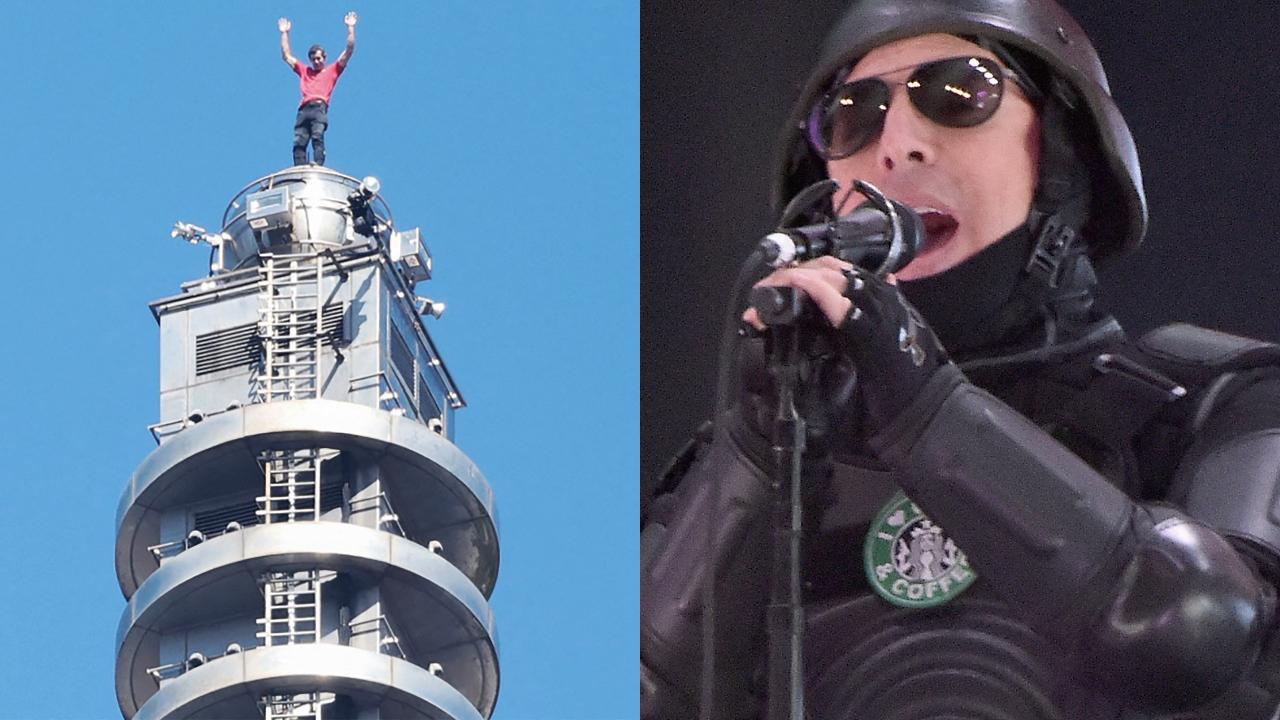And then there was light: How Architects are taking their next steps
Eighteen months ago, Architects suffered an unimaginable tragedy that threatened to derail them for good. As a new year dawns, they prepare to finally move forward
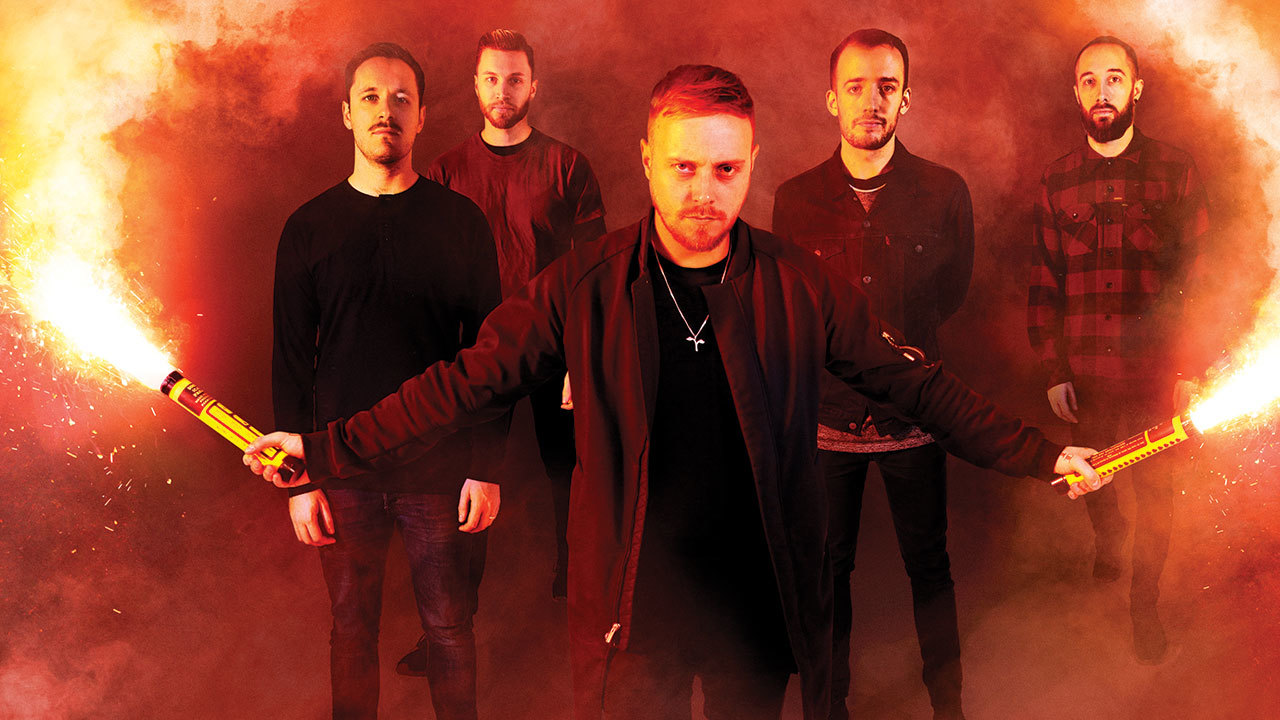
Select the newsletters you’d like to receive. Then, add your email to sign up.
You are now subscribed
Your newsletter sign-up was successful
Want to add more newsletters?

Every Friday
Louder
Louder’s weekly newsletter is jam-packed with the team’s personal highlights from the last seven days, including features, breaking news, reviews and tons of juicy exclusives from the world of alternative music.

Every Friday
Classic Rock
The Classic Rock newsletter is an essential read for the discerning rock fan. Every week we bring you the news, reviews and the very best features and interviews from our extensive archive. Written by rock fans for rock fans.

Every Friday
Metal Hammer
For the last four decades Metal Hammer has been the world’s greatest metal magazine. Created by metalheads for metalheads, ‘Hammer takes you behind the scenes, closer to the action, and nearer to the bands that you love the most.

Every Friday
Prog
The Prog newsletter brings you the very best of Prog Magazine and our website, every Friday. We'll deliver you the very latest news from the Prog universe, informative features and archive material from Prog’s impressive vault.
Sam Carter is casually tossing a parachute flare into the air, as his bandmates in Architects look on in horror. The flares we’ve found for today’s photoshoot were manufactured in 1983, meaning they’re older than the singer himself, and no one’s quite sure what will happen if he ignites one. Maybe nothing. Or maybe a burst of flame will annihilate the studio, causing a swift evacuation and landing Metal Hammer with a hefty bill.
“I desperately want to set them off!” the singer grins mischievously. “It’s because I’ve been told not to. It’s sort of like when you’re told not to press a button and you instantly want to press it…”
He’s upbeat today as we chat in Architects’ hometown of Brighton, where the band have been hard at work writing new material – something fans weren’t sure would happen, given guitarist Tom Searle’s tragic death from cancer in August 2016.
But a year on from their loss, the band announced a European tour, culminating in a show on February 3 at London’s 10,000-capacity Alexandra Palace – twice the crowd of their biggest UK show to date. Whispers began to circulate about whether music would soon follow. Less than two weeks later came the surprise-release of Doomsday, a standalone single that honestly and beautifully detailed the pain of grief. It was accompanied by a moving video featuring Tom’s twin brother, drummer Dan, suspended in the expanse of the universe. The message was clear: Architects were striding confidently into a bright new future.
“I’m relieved and pleased people connected with Doomsday,” says Dan, talking frankly and humbly as he sits beside Sam for our chat. “It’s very meaningful for us, and it was nice to feel like we were moving forward, and that things were going to be OK.”
The band posing for pictures in our studio today, completed by bassist Ali Dean, and guitarists Adam Christianson and Josh Middleton, have still got a hard road ahead of them. But behind the scenes, and away from the glare of fans and social media, they’ve been taking steps every day. Dan in particular began writing lyrics for their eighth album immediately after his brother passed away.
“I didn’t know what to do with myself, I suppose, but also part of me felt like I should really document what this feels like,” he explains. “Because at some point, everyone loses someone, and maybe other people would hear these words and it would resonate with them. And if it’s then put into context of a record that’s documenting a whole year of grieving, maybe they could see that they might move into a space in their life where they feel more positive.”
Sign up below to get the latest from Metal Hammer, plus exclusive special offers, direct to your inbox!
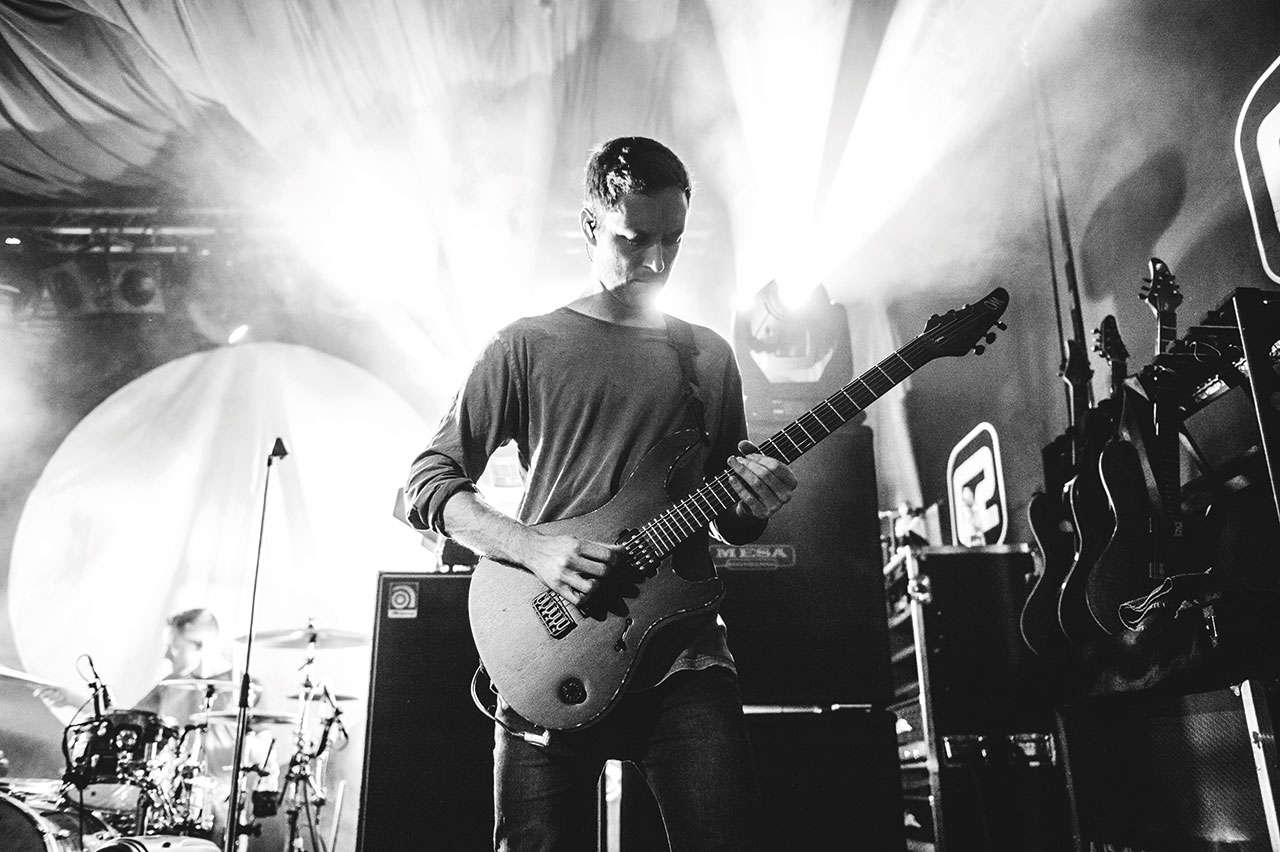
Dan was unprepared for the trauma of losing his twin. Encouraged by his wife, he had therapy during the final days of Tom’s life, and is still going now.
“My first session was really, really hard. Obviously the days before Tom died were really bizarre and surreal and very difficult, but I was sort of in shock to some degree as well, just deer-in-the-headlights,” he remembers. “I had needed it for a long time, though. Because I was taking care of Tom, and I was so sure that he would be OK, I kind of… I kind of get obsessed with things as a way of not dealing with my problems. The problem was Tom was sick. But my obsession was getting him better. So I never really dealt with the fact that he was sick.”
After Tom passed away, Dan transferred his obsession to the band, and onto writing.
“Something like your brother dying, you can’t really comprehend all that in one breath. You need to chip a bit off that subject as a whole, and examine that little bit,” he reasons. “And I’m still working through it.”
Sam had gone into therapy after recording All Our Gods Have Abandoned Us in 2016. Screaming lyrics about death and destruction had left him with stress headaches and a heavy sense of mortality, presumably compounded by Tom’s illness, which was kept secret from the outside world at the time. He hasn’t been able to face therapy since Tom died, but is about to start it again.
“There were points on the last tour, and around Doomsday, where I was completely burnt out,” he admits, retreating into the comfort of the grey hoody pulled tightly around his face. “I don’t think I realised the weight of the things I was saying onstage every day about Tom, and I went into autopilot. I was bringing stuff up that I wasn’t really talking about with anyone, and onstage was not the easiest place to do it.”
Currently also dealing with a break-up from his long-term girlfriend, he’s coming to terms with the notion it’s normal to experience hurt, and it’s fine to openly admit to struggling with your feelings.
“There’s a lot of stuff going on in my life and head, but it’s not all to do with Tom,” he says. “I think one thing I’ve learned through our little Architects family is to just be honest with each other, and it’s OK to not be happy all the time. The way that I always used to deal with everything is to try and be the joker of the pack, and if I’m not joking then I’m in a bad mood. It’s OK to not be OK.”
“I think that will be a focus on the record,” picks up Dan, gently protective of Sam throughout the conversation. “All of us guys have suffered a lot since Tom died and before Tom died, so the record is addressing that. What it is to suffer, and how you use that. Do you just feel sorry for yourself, do you just be a victim of life, or do you look at it and use it to inspire yourself to be a better person – to live life. Part of the process is to acknowledge that you’ve been through a nightmare. And you’re gonna need to cry, you’re gonna need to sit with that pain and acknowledge it, and not pretend it’s not there.”
When Architects went to tour Australia with Bring Me The Horizon three weeks after Tom died, and just two weeks after his funeral, emotions were volatile. Still trying to process their bereavement, there were tears onstage as well as off. Sam and Dan stress the need to destroy the cultural barriers that stop men expressing emotion in front of people, to break the mental health stigma and to shed the alpha male identity inherited from their fathers’ generation.
“It’s funny,” says Sam. “Talking onstage about Tom, I don’t want to cry. I don’t want to show that side of me. But it’s a human emotion. I’m talking about something so honest.”
Dan agrees: “Do you know what? What I’ve learned, over and over since Tom died, every time a man is honest and shows his emotions, it’s not ridiculed ever – it’s always applauded,” he notes. “Yet we still resist it. ‘God, what are people going to think?’ ‘Oh, that guy’s crying because his brother or best friend has died. What a fucking loser!’ Who’s going to think that? People understand.
“People will say I shouldn’t speak about it because I’m not an expert, but I see a lot saying there’s a mental health crisis. And I think a large part of it is down to swallowing our emotions. And then when those emotions do come up, we don’t know how to deal with it. So we get drunk, or do drugs or whatever, because we’d rather do that than feel pain. And sometimes I just need to feel 10 minutes of pain and then I’ll be OK. I think people like us need to demonstrate that to generations coming ahead of us.”
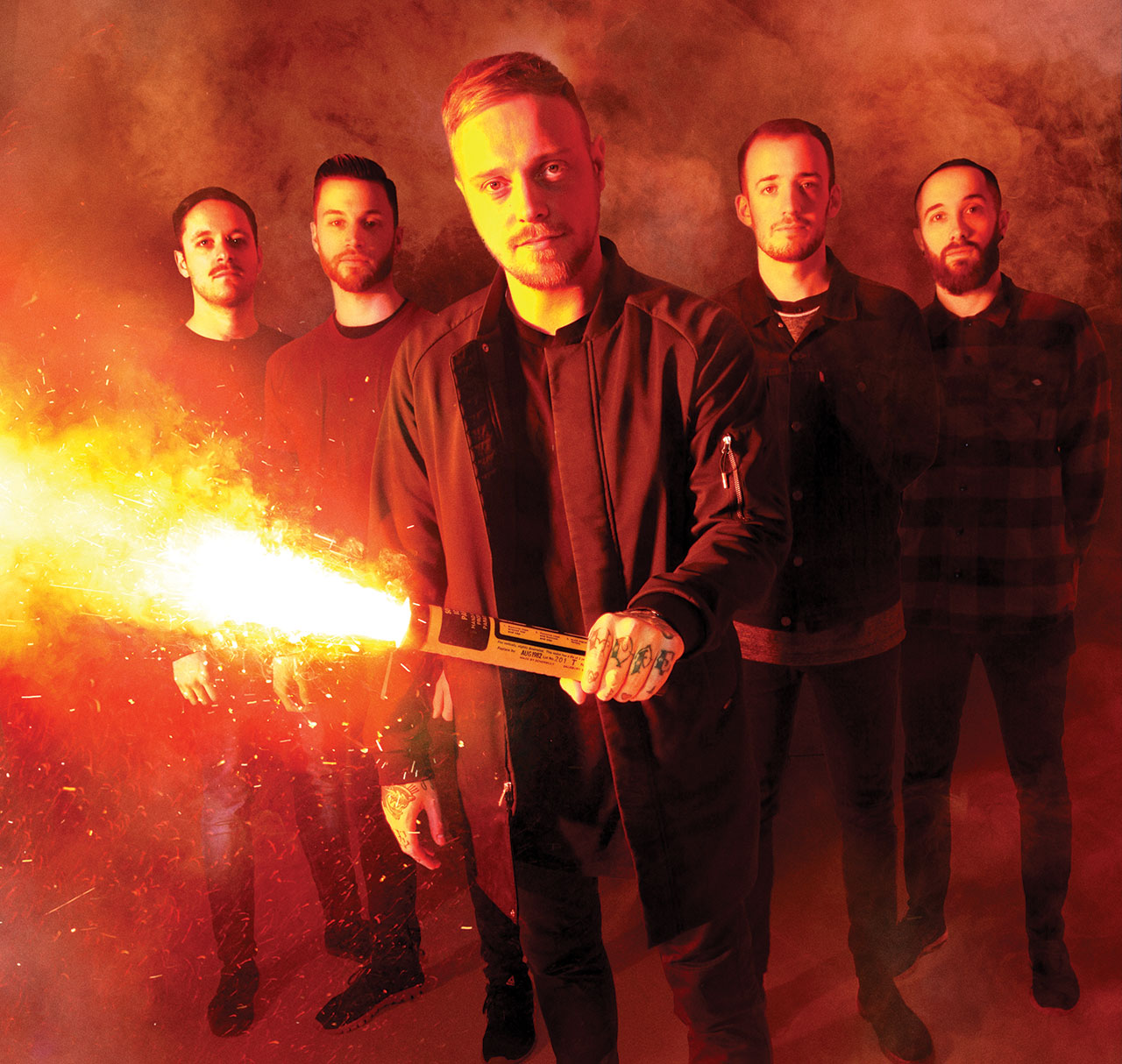
Although Dan freely poured his thoughts into lyrics during those early days, attempting to crystalise his experience of grief for the benefit of himself and others, doubt nagged at his mind. Standing onstage at Brixton Academy for an emotional gig in front of 5,000 people, three months on from the biggest trial of his life, he didn’t know whether the band had the ability to write music together anymore. Then Josh, the band’s longtime friend and former Sylosis guitarist, who was brought in to take up Tom’s position, sent through a couple of tracks that were “just a bag of riffs”. Dan found he was able to chop them up, restructure them, and add more of Architects’ character – much like he had done with Tom on a clutch of songs from 2016’s All Our Gods Have Abandoned Us. The tension lifted.
“It was a similar process, but working with a different person who I have a very different relationship with,” Dan says. “And Josh has learned to collaborate, because with Sylosis he had dominion over the whole project. He’s grown into that role, and got better and better as he’s found what works best for Architects.”
They selected Doomsday from 10 rough songs, and then added the vocals, trying to strike a balance between staying true to their sound and “turning heads” with new ideas – something they’re aiming for in their future music.
“Tom wanted to do something different on the next record,” reveals Dan. “There was a feeling that on the last two albums, we could have diversified a bit more. We were really pleased with [2014’s] Lost Forever // Lost Together. The funny thing is, we just wanted to write a really heavy album, we didn’t do it to get big, so we felt like we struck gold, because it was a bit of a hit. And so with All Our Gods Have Abandoned Us, it was really about refining that. But then it felt like… OK, well we’ve done that now. On this one, there are a lot of doors that are open to us; there’s a lot of variation and different ideas.”
“I think a lot of the experimentation really is vocally,” adds Sam. “It’s a whole different ballgame now, from Doomsday and moving forward.”
Despite the new direction, Tom’s legacy will always loom large over Architects. Amid the supportive reactions to Doomsday were some small voices of dissent from those who couldn’t comprehend embracing a band missing one of its much-loved founding members.
“People’s perception of Architects with Tom, and Architects without Tom, is a weird thing,” begins Dan. “I’ve seen people say they don’t like Doomsday because Tom didn’t write it, and then they find out that Tom did write some of it, and then they decide they like it. Even though it’s exactly the same song. So there’s always going to be this allegiance to Tom, which I understand, in a way.”
The band are also finding it tough to balance their allegiance to Tom with the practicalities of writing music. They’ve previously told us how the pressure of crafting Doomsday, of obsessing over every detail to make sure it was perfect in his honour, “drove them insane”. Now they’ve got to ensure that doesn’t happen again.
“The annoying thing about Doomsday is that it set the bar for the album a little bit – a tone that we then wanted to match,” acknowledges Dan. “And it’s hard, because you can’t put as much effort into 12 or 13 songs as we put into Doomsday, because you would get ill.”
It’s something Dan and Sam have been mindful of while demo-ing material in recent weeks.
“I want to write a really good record, and I’m sure it’s exactly the same for everyone else in the band, because I want to do it for Tom,” explains Dan. “Which sounds like an incredibly inspiring motivator, and it is, but the problem is that it could push you over the edge, because you don’t know when to stop, and it goes into madness and obsession.”
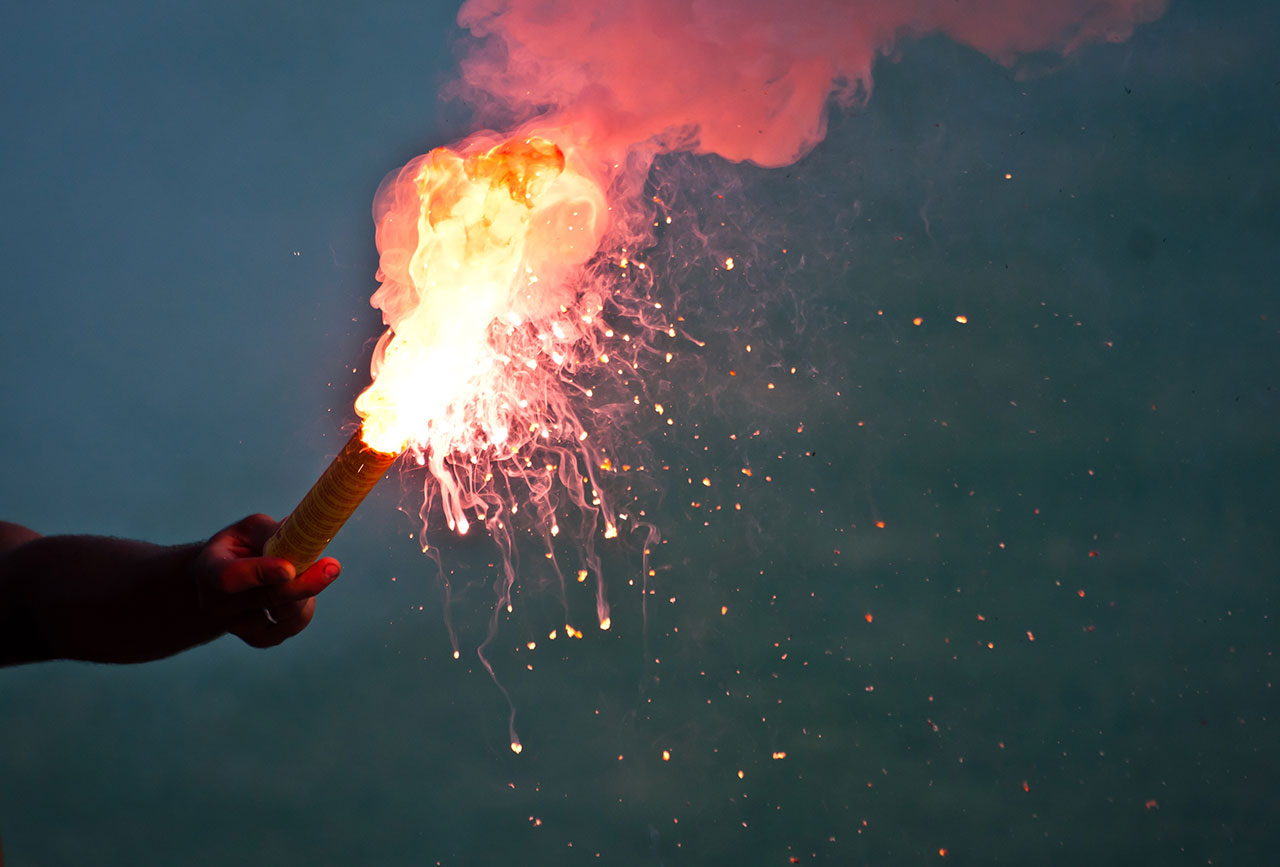
If the enormity of writing a new record wasn’t enough to contend with, Architects are also facing their biggest headlining show to date. On February 3, 10,000 fans will be watching as they step onstage in front of a sold-out Ally Pally.
“It’s going to be an hour-and-a-half panic attack!” laughs Sam. “I’m gonna have to have a lot of tequila to remotely even wanna walk near that stage, let alone be up there singing.”
When the gig was conceived, the band thought they’d maybe sell 7,000 tickets. A thousand more, if they were lucky. Dan admits they feel entitled to draw good crowds in the UK because it’s their home, but are still battled-scarred from a disastrous tour in 2012 off the back of their melodic fourth record, The Here And Now, which was badly received by their fanbase. It left them with a lingering hint of insecurity.
“Having that moment of wobbliness in the UK years ago has given us a little bit of doubt,” he admits. “We sold out Brixton Academy on the night, it wasn’t like we pissed it out months in advance and it was a piece of cake. So then doing double the amount of tickets… hand on heart, we’re stunned.”
It’ll likely be their only UK show of 2018, as they concentrate on gaining more momentum in the States. It may be their smallest market, but they’re still playing 1,000-capacity venues: an extraordinary achievement for a band who have pushed on through fluctuations in popularity, line-up changes and personal tragedy. As further proof of their growing status, Dan points to their recent work with Labour leader Jeremy Corbyn.
“That feels like the biggest indicator of where the band is at, that we can have dialogue with a candidate for Prime Minister,” he says. “It maybe says more about Jeremy Corbyn and the way he operates as a politician and wants to engage with the youth than it does about us. But at the same time, I can’t help but feel like, ‘Bloody hell, our band has a direct line to the leader of the Labour Party.’ That feels crazy.”
Ask what Tom’s ambitions were for Architects, and they bring up his wish to play the late slots of European festivals. Alternating between pride, disbelief and sadness, they describe his final show: Germany’s Rock Im Park, June 4, 2016.
“It was a full arena, and that felt like a really defining moment for our band,” recalls Sam. “That day, I don’t think any of us thought he was going to be able to play the show, and then he did, and that was…”
“…it was a magical moment for me,” finishes Dan.
“I’ve never experienced an emotion like that, ever,” Sam says.
YouTube footage shows the band smashing out songs such as Phantom Fear and These Colours Don’t Run, while the crowd scream along. At one point, the venue of thousands pulls off the trick of getting on the floor and jumping back up. Tom was there because he had signed himself out of hospital in England to go on the road.
“He was so ill that he could barely get onstage, but no one knew it,” Dan remembers. “And he was just stood still, because he didn’t have the energy to do anything else. But doing that in private and not knowing on the day whether he was going to play, and a few days later he was in a coma… it just felt like, ‘What the fuck is going on?’. We’re on tour, I don’t know if Tom’s going to survive through the night, in his bunk. It was a ludicrous experience.”
“To look out around the stage and into the crowd, you wouldn’t have known,” adds Sam. “It was when you looked past that, to where our techs were or Dan’s wife was, and then you’d see them crying. You couldn’t even take it in. It was like… ‘I’m just going to enjoy playing music with my friends right now.’”
No one can understand what it has been like for Architects, but Dan does offer an insight into what Tom was going through in those final months, as he transitioned from daily life in the band to being mindful of death.
“All Our Gods… achieved everything Tom wanted to achieve in terms of the kind of shows the band is playing. But you know, those things sort of dissolved away for him, and facing his mortality he became disinterested in money and shows,” he says, matter-of-factly bringing an incomprehensible experience into sharp relief. “It’s all just smoke. You can’t grab hold of it. It doesn’t provide you with any sort of sustained happiness.”
He pauses, making light of the situation: “I’ll keep indulging in it until the day I die, but he just…”
“…it was more sort of this vibe, this atmosphere – happiness, I think,” picks up Sam.
“I think he just wanted to write cool songs, and wasn’t really too much concerned with anything else,” Dan concludes.
Architects are continuing that wish right now. As they piece together their eighth record, they’re grasping at a new identity that will reconcile where they’ve been with where they want to go next. They’re putting their faith in the unknown. In the words of Lost Forever // Lost Together’s C.A.N.C.E.R, Tom’s words, it’s an opportunity to ‘Find a little light and hold it close’.
“Tom getting cancer was a catalyst for Lost Forever… and All Our Gods…, so we’ve had extraordinary circumstances for the last two records. And now we have different extraordinary circumstances for this record,” says Dan. “I hope that we can turn what has been a very horrible experience into a great record that we’re proud of, but Tom would have been proud of as well.”
Beyond the “dark, cinematic sound” Dan promises, it will bear a message to learn from hardship and live with purpose, delivered with the raw sincerity felt inside Doomsday’s urgent maelstrom.
“I hope that people will find it helps them work through whatever pain they’re going through,” says Dan. “I hope that it helps bring out a change in perspective on dealing with these things, and the fact you have to honour the discomfort and the suffering. Or you don’t move forward.”
Architects headline London’s Alexandra Palace on February 3
MIND
The charity is one of the UK’s foremost mental health organisations and is a good first stop for people looking to understand and start dealing with their problems. Mind also offer great advice on knowing your rights when it comes to mental health.
samaritans
Samaritans offer a free, confidential, nonjudgemental service for people to talk through their worries. You can call, email, text, write or speak to them face-to-face. They are open every single day of the year.
HELP MUSICIANS UK
As featured in our look at depression within the metal scene last year, Help Musicians UK offer guidance for people in the industry suffering from depression or anxiety. They have a free helpline on 0808 802 8008, or you can find out more online.
Architects premiere video for blistering new track Doomsday
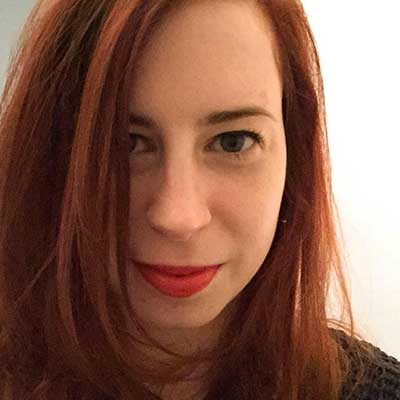
Eleanor was promoted to the role of Editor at Metal Hammer magazine after over seven years with the company, having previously served as Deputy Editor and Features Editor. Prior to joining Metal Hammer, El spent three years as Production Editor at Kerrang! and four years as Production Editor and Deputy Editor at Bizarre. She has also written for the likes of Classic Rock, Prog, Rock Sound and Visit London amongst others, and was a regular presenter on the Metal Hammer Podcast.
